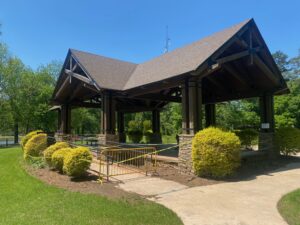Heading into the dry season in which revenues begin to creep up, the Peachtree City Water and Sewer Authority’s finances have been tracking quite well, according to General Manager Stephen Hogan.
The budget has gone so well that the authority will be considering later this year if they can issue a rebate in some manner to ratepayers to account for the savings from the recent bond refinancing.
The authority will be working on the budget starting next month and it will be adopted no later than October 15; afterward the time will be ripe to start talk of the size of a potential rebate, authority Chairman Mike Harman said at Monday’s WASA meeting.
Harman also said it was time for the authority to conduct a rate study to see how it matches up with other sewer systems in the state.
New development is helping with a slight uptick in total revenue from the total monthly projected amounts, and expenses are down 1.36 percent for the fiscal year to date, Hogan reported.
In light of the smelly water crisis that hit the Fayette County Water System, WASA discussed Monday how much detail in status reports they expect to receive from authority leadership, particularly as several new members were curious how that system works. WASA does not produce drinking water, instead treating sewage to meet state and federal guidelines before releasing it into Line Creek at two points downstream of the county’s new Lake McIntosh reservoir.
Hogan noted that anytime there is a critical incident such as the power loss to a pump station or worse yet an overflow that releases raw sewage, he will send an email notifying WASA members. Anything serious enough to cause Hogan to be woken up in the middle of the night, he said for example, would be passed on that night to WASA members as well, Hogan said.
And if authority members want to provide their cellphone numbers, they can be signed up to get automatic alerts from the sewer system’s monitoring service as well, though that may provide more of a hassle for authority members in some respects, Hogan added.
WASA has helped the Fayette County Water System through part of its solution for the smelly water crisis by helping pump water from a backwash lagoon so sludge can be removed by a separate contractor hired by the county. Hogan said Monday that the system has pumped over 10 million gallons from the lagoons for the water system and has submitted its first bill for that service at the same rate of $6.15 per 1,000 gallons charged to non-residential customers, Hogan added.
WASA was able to muster help quickly to provide that service because of a pre-existing contract with a private company to lay sewer pipe on an emergency basis, officials have said previously. WASA has also contracted to allow the county to haul the sludge to the Miller Farm application site off Ga. Highway 85 several miles south of Fayetteville.
The authority also had a discussion about emails between members and how to make sure they are preserved under the Georgia open records act. Authority member Phil Mahler suggested that he wouldn’t mind having an account on WASA’s servers to make sure the emails are preserved as required by law. Authority member Terry Garlock said he was skittish about that idea because of concerns over employee access to those emails.
Garlock said that last week he set himself up a new separate email account to handle WASA business “and I think it would be wise for us all to do it.”










Leave a Comment
You must be logged in to post a comment.